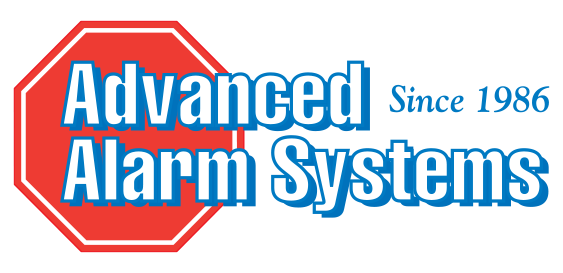
In a world where safety regulations are tighter than ever, choosing the right fire alarm system for your business is not just a compliance issue; it’s about safeguarding your employees, assets, and the continuity of your operations. With so many options on the market, it can be daunting to find the perfect fit.
This guide aims to simplify that process, providing you with the essential knowledge and tools to make an informed decision.
Understanding the Importance of Fire Alarm Systems
Fire alarm systems are crucial in ensuring the safety of any commercial establishment. They serve as a first line of defense against fire hazards. These systems not only alert occupants of danger but also signal emergency services, reducing potential damage. By installing a reliable fire alarm system, businesses can protect lives and minimize property loss, contributing to overall peace of mind.
Fire alarms are more than a safety device; they’re a legal requirement. Building and safety codes mandate their installation in commercial spaces, emphasizing their significance. Failing to comply can lead to fines or worse, putting people in jeopardy. A well-chosen system could be the difference between a minor incident and a major catastrophe.
Furthermore, effective fire alarm systems can actually lower insurance premiums. Insurers view them as risk mitigators, possibly resulting in reduced costs. Thus, investing in a quality system is financially sound, making it a win-win for business owners.
Knowing Your Business Needs
Every business is unique, and so are its fire safety needs. The nature of your operations plays a significant role in determining the right system. A restaurant, with its open flames and cooking equipment, may require a different approach than an office setting. Understanding these differences is key to choosing an appropriate solution.
Size matters too. Large businesses with expansive layouts might need more complex systems with multiple sensors and alarms, while smaller companies could opt for simpler setups. Evaluating the physical space ensures that all areas are adequately covered, leaving no room for oversight.
Consider the number of employees and customers typically present. High occupancy demands more robust systems to ensure everyone’s safety. Tailoring the fire alarm system to accommodate these variables not only ensures compliance but also optimizes the safety and effectiveness of the system.
Types of Fire Alarm Systems to Consider
Choosing the right fire alarm system starts with understanding the different types available. Conventional fire alarm systems are suitable for small to medium-sized businesses. They use a network of wires and zones to detect and signal fires. While cost-effective, pinpointing exact fire locations can be challenging.
Addressable systems offer a more precise solution. Each detector has an individual address, allowing for specific alerts. This makes them ideal for larger businesses with complex layouts. Though they come with a higher price tag, the accuracy and flexibility they provide are often worth the investment.
Wireless systems are the latest innovation, providing installation flexibility. They’re perfect for buildings where wiring is impractical or unsightly. Though more expensive upfront, reduced installation costs and minimal disruption make them an appealing choice for many business owners.
Assessing Fire Risks in Your Business Environment
Before selecting a fire alarm system, assessing the specific fire risks in your business environment is essential. Identify potential hazards such as electrical equipment, flammable materials, or high-heat processes. Understanding these risks helps tailor a system that effectively mitigates them.
Consider historical data and past incidents that may have occurred. Learning from previous experiences can highlight areas that require additional protection. This proactive approach ensures that you’re not only meeting regulations but also safeguarding your business comprehensively.
Don’t forget seasonal or temporary changes that might affect risk levels. For example, increased inventory during peak seasons could necessitate additional detectors. Regularly revisiting and reassessing the risk factors keeps your fire safety measures up to date and relevant.
Navigating Fire Safety Regulations and Compliance
Navigating fire safety regulations is a crucial part of selecting the right system. Different regions have varying building and safety codes, so familiarizing yourself with local requirements is vital. Consulting with a fire safety expert can provide clarity and help interpret these regulations correctly.
Compliance is not just about meeting minimum requirements; it’s about creating a safe environment. An understanding of applicable standards such as NFPA and OSHA guidelines ensures your system is up to par. This proactive approach prevents potential legal issues down the line.
Investing in a compliant fire alarm system is also about reputation management. Demonstrating a commitment to safety enhances your business’s image and fosters trust with employees and customers alike. It’s a reflection of your values and priorities, positioning you as a responsible leader in your industry.
Setting a Budget for Your Fire Alarm System
Budgeting for a fire alarm system requires careful consideration and planning. While cost is a significant factor, it shouldn’t compromise quality or coverage. Determine your budget early on, taking into account installation, maintenance, and potential upgrades.
Cheap systems may save money upfront but can lead to costly repairs and inefficiencies. Evaluate different options within your budget range, focusing on finding value rather than just the lowest price. This approach ensures you invest in a system that will perform reliably over time.
Consider financing options if the ideal system exceeds your budget. Many suppliers offer payment plans that make advanced systems more accessible. This flexibility enables you to prioritize safety without straining your finances, striking a balance between cost and protection.
Collaborating with Fire Safety Experts
Working with fire safety experts can facilitate the selection process immensely. These professionals have extensive knowledge and experience, offering insights that might not be apparent to non-specialists. Engaging their services ensures you make informed decisions tailored to your business’s unique needs.
Experts can conduct thorough assessments, identifying specific requirements and potential pitfalls. Their input can guide you through regulatory compliance, system design, and installation, providing a comprehensive package. This collaboration ensures that every aspect of fire safety is covered seamlessly.
Building a relationship with a fire safety consultant is also a long-term investment. Continued support and guidance ensure your system evolves with your business, adapting to new challenges and changes. This partnership provides peace of mind, knowing you’re backed by professionals committed to your safety.
The Role of Technology in Modern Fire Alarm Systems
Modern fire alarm systems leverage cutting-edge technology to enhance performance and reliability. IoT-enabled devices allow for real-time monitoring and remote control, offering unprecedented convenience. Business owners can receive alerts and manage systems through smartphones, ensuring control even when away.
Integration with building management systems is another technological advantage. Fire alarm systems can be linked with HVAC and lighting controls, automating responses to emergencies. This synchronized approach maximizes safety and efficiency, minimizing human error.
Artificial intelligence and machine learning are also finding their way into fire safety. These technologies predict potential fire hazards, offering preemptive alerts. Investing in a tech-driven system positions your business at the forefront of safety innovation, providing a competitive edge.
Maintenance and Testing of Fire Alarm Systems
Maintaining and testing fire alarm systems is crucial for ongoing effectiveness. Regular checks ensure that all components function correctly, minimizing the risk of failures. Developing a maintenance schedule with professional input keeps your system in top shape.
Periodical drills and tests are also essential. These activities familiarize employees with procedures, reducing panic during actual emergencies. Engaging staff in these exercises fosters a culture of safety and preparedness, enhancing overall workplace morale.
Don’t overlook the importance of documentation and record-keeping. Keeping detailed records of tests, maintenance, and updates ensures compliance and accountability. This organized approach assists in identifying trends or recurring issues, guiding future improvements.
Monitoring and Evaluating System Performance
Monitoring and evaluating system performance is an ongoing task. Regular assessments ensure the system remains effective and aligned with evolving business needs. Using analytics and reporting tools provides valuable insights into performance trends and areas for improvement.
Schedule periodic reviews with fire safety experts to fine-tune the system. These evaluations identify potential upgrades or adjustments, keeping your system at peak performance. Proactive monitoring ensures you’re always prepared, adapting swiftly to changes and challenges.
Feedback from employees and stakeholders is also valuable. Their experiences and observations can highlight issues or opportunities for enhancement. Incorporating this input creates a comprehensive evaluation process, ensuring your fire alarm system continues to meet the highest standards.
Conclusion
Choosing the right fire alarm system for your business is a multifaceted process that demands attention to detail and strategic planning. From understanding your specific needs to collaborating with experts, every step is crucial in creating a safe and compliant environment. Remember, a well-chosen system is an investment in your business’s future, providing protection, peace of mind, and financial benefits.
By following this guide, you’ll be well-equipped to make informed decisions and implement a system that aligns with your goals and values.
Ready to elevate your business’s fire safety measures to the next level?
Connect with Advanced Alarm Systems to explore cutting-edge solutions tailored to your unique requirements. We have been serving our customers since 1986 and we provide security and life safety solutions throughout Massachusetts and New England.
Contact us today to learn more about how our advanced alarm systems can create a comprehensive security solution tailored to your unique business needs. Protect what matters most and gain peace of mind knowing you have the best security measures in place.
